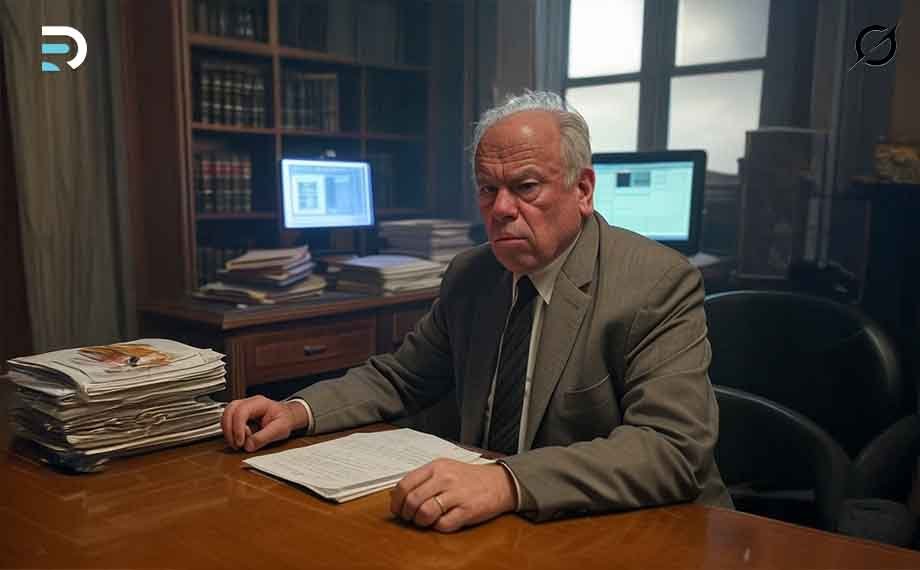AI vs. Lawyers: Will Prompt Mastery Redefine the Legal Profession?




The blog post and images, including "The Future Legal Team" depicting lawyers and AI collaborating, were created with Grok, an AI by xAI. Grok assisted in making the true story of a court letter experience clearer, enhancing the narrative about AI’s role in law.
By rossinimendanha Generate by GROK
A Personal Wake-Up Call
A few weeks ago, I received a letter from the court that sent me into a spiral of panic. I had no idea how serious the case was, and my first instinct was to call a lawyer. But before I did, I decided to try something unconventional—I turned to AI. I uploaded the entire letter, asked the AI to analyze it, explain the situation, and guide me step by step on what I should do. To my surprise, the AI delivered a concise breakdown of the case, outlined my options, and provided clear, actionable steps to take. It was quick, free, and incredibly helpful.
Curious to see if this was too good to be true, I called a lawyer to confirm I was on the right track—without mentioning the AI’s input. The lawyer’s advice mirrored the AI’s almost exactly, but they overlooked a few key details the AI had caught. This experience left me with a burning question: if AI can provide faster, cheaper, and sometimes more thorough legal guidance, why would people pay for lawyers in the future? As AI continues to evolve, its interaction with professionals like lawyers will reshape the legal field, challenging them to adapt or risk obsolescence.
AI as a Game-Changer in Legal Work
My experience isn’t an isolated case. AI tools, like advanced language models (think successors to today’s GPTs or systems like Grok, built by xAI), are already transforming the legal profession. They can draft contracts, review case law, predict judicial outcomes, and even guide individuals through legal processes—all in a fraction of the time it takes a human. In my case, the AI analyzed a court letter, identified the legal implications, and gave me a step-by-step plan in minutes. A task that might have taken a lawyer hours (and cost hundreds of dollars) was handled instantly, for free.
In the near future—within the next 5 to 10 years—AI could become a standard tool in legal practice. Imagine AI systems sitting alongside lawyers in strategy sessions, offering real-time analysis of case law or flagging risks in a contract. But for AI to be effective, it needs clear instructions. This is where professionals, and even laypeople like me, must learn to interact with AI through precise prompts. My prompt to the AI was simple but specific: “Analyze this court letter, explain the situation, and guide me on what to do.” The result was a tailored, actionable response that rivaled a human expert’s advice.
The Challenge for Lawyers—Staying Ahead of AI
Lawyers have always adapted to technological shifts, from typewriters to online legal databases. But AI is different—it doesn’t just automate rote tasks; it encroaches on cognitive ones. In my case, the AI didn’t just summarize the court letter; it interpreted the legal jargon, assessed the severity of the case, and recommended steps I could take, from gathering evidence to filing a response. The lawyer I consulted later gave similar advice, but they missed a few nuances the AI had caught, like a specific deadline I needed to meet.
This raises a critical question: if AI can handle a significant portion of legal work—think discovery, contract review, or even basic case analysis—what sets a human lawyer apart? The risk of obsolescence is real. A lawyer who relies on traditional methods might find themselves outpaced by AI, or by clients who turn to AI first, as I did. In the future, if AI can provide 80% of the guidance a lawyer offers, and for free, why would clients pay high hourly rates? The answer lies in the uniquely human skills lawyers bring—empathy, ethical judgment, and persuasive advocacy—but only if they can leverage AI to enhance, not replace, their work.
Prompt Writing—The Skill That Will Keep Lawyers Relevant
My experience highlighted a crucial skill for the future: prompt writing. The AI didn’t magically understand my needs; I had to ask the right question. My prompt—“Analyze this court letter, explain the situation, and guide me on what to do”—was specific enough to get a useful response. If I had been vague, like asking “What does this letter mean?” I might have gotten a generic answer. This skill of crafting precise, context-rich prompts is what will separate the lawyers who thrive with AI from those who fall behind.
In the near future, law schools might teach “AI Interaction Design,” training students to query AI systems effectively. Firms could hire “prompt engineers” to optimize their workflows. Lawyers who master this skill will amplify their productivity, using AI to handle routine tasks while focusing on high-value work like courtroom advocacy or client counseling. For example, a lawyer could prompt an AI with: “Review this merger agreement for risks under New York law, focusing on antitrust clauses, and suggest revisions.” The AI’s output would save hours of manual review, allowing the lawyer to focus on strategy.
Why Pay for a Lawyer When AI is Free?
My experience with the court letter left me wondering: if AI can provide such accurate, fast, and free legal guidance, why would anyone pay for a lawyer? The lawyer I consulted charged me for a full hour, even though the AI gave me a better response in minutes. While the lawyer’s advice was solid, it wasn’t significantly better than the AI’s—and in some ways, it was less thorough. This isn’t to say lawyers will become obsolete overnight, but it does suggest a future where their role must evolve.
Lawyers will need to offer something AI can’t: the human touch. AI can analyze a case, but it can’t hold a client’s hand through a stressful lawsuit or argue passionately in a courtroom. However, to stay competitive, lawyers must integrate AI into their practice, using it to deliver faster, more cost-effective services. Clients might not pay $500 an hour for a contract review AI can do for free, but they’ll pay for a lawyer who uses AI to provide strategic insights, negotiate deals, or navigate complex ethical dilemmas.
Conclusion: The Future of Law in an AI World
My experience with AI providing faster, more thorough legal guidance than a lawyer showed me that the future of law is AI-augmented. Lawyers must master prompt writing and leverage AI to stay competitive, focusing on uniquely human skills like empathy and advocacy. Those who adapt will lead the way; those who don’t risk being left behind in a world where AI makes legal knowledge more accessible than ever.
Share the Post:
Table of Contents
Posts
- How AI Transforms Soccer Players Into Superstars
- Incredible AI: Spotting Disease Faster in Scans
- IA Sem Freio? A Urgente Busca por Ética e Regulação Global
- Artificial Intelligence and Human Creativity in Music
- Minha Saga na musica
- IA e Musica
- O Futuro da Dublagem: Colaboração ou Transformação?
- IA Jurídica: Ameaça ou Oportunidade?
- AI vs. Lawyers: Will Prompt Mastery Redefine the Legal Profession?
- Hero concept